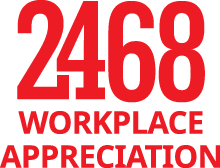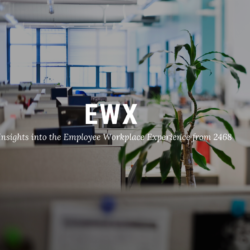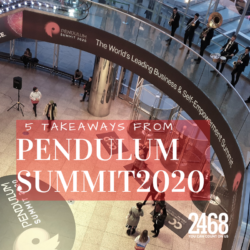How investment in wellbeing unlocks issues during time of organisational change.
Change is the world of work is constant but accelerating. Some say it’s transformational. Organisations are changing, markets are changing, and the nature of work is changing.
Fewer than 12% of the Forbes Fortune 500 companies included in 1955 were still on the list 62 years later in 2017. That’s almost 9 out of every 10 who have disappeared, merged or contracted to drop out of the top 500. EU wide almost 20-30 firms are recorded as restricting every week.
Firms are being born and dying faster, ideas are evolving more quickly – being brought to market more quickly and big data is pushing supply chains ever faster. So speed is a constant- and stress-inducing.
Technology has a role to play in altering the employee experience also of course. Roles are altering rapidly as artificial intelligence has an impact, in white collar or ‘professional’ roles, as well as in more mechanical blue-collar functions. Within organisations the way we carry out our functions also changes continuously, driving efficiencies and placing new demands.
The way we work has changed, as technology, which is always on allows us to work anywhere at any time.
Behind the drive for growth, change has a a human impact. The shock of the new can create uncertainty, inconvenience and sometimes a threat to status. This naturally can create resistance.
In fact a recent KPMG Study recorded that 83% of mergers in 2015 didn’t boost shareholders returns. There’s a connection between this financial failure and the human impact and cost of all this change.
WELLBEING – A TRIGGER TO SUPPORT CHANGE
Professor Kevin Daniels, of University of East Anglia is one expert who has proved the connection between investment in wellbeing and successfully managing change. The team reviewed over 25,000 studies and analysed data from over 100,000 individuals and hundreds of organisations. The concluded that the most successful change programmes, actively embraced and supported wellbeing as a core commercial strategy for success.
HOW CAN WELLBEING HELP?
A change like a merger or acquisition naturally creates uncertainty. As CIPD in the UK recommends, what’s key is building trust, through a very open process, and continued shared vision of the new stage.
Our experience shows that using the physical space to introduce and celebrate change can be a very powerful tool. Working with a fast growing IT consultancy in the UK which was growing rapidly through almost monthly acquisitions, we created a series of employee hubs, break out spaces which celebrated the new employer brand and identity. The hubs were an investment in quality coffee and break space. More than that, they were a commitment to the employees, by the organisation that it valued them, their break time and their space to socialise. They provided a canvas to share the story behind the new company and its vision for growth, inspiring confidence and engagement.
An organisation which shows an awareness of the human experience of change and which invests in its people, creating a healthful and human-focussed workplace will grow the trust of its employees.
We’re human – many of us find change difficult. With trust and a sense of valued, we can learn to thrive in change.



